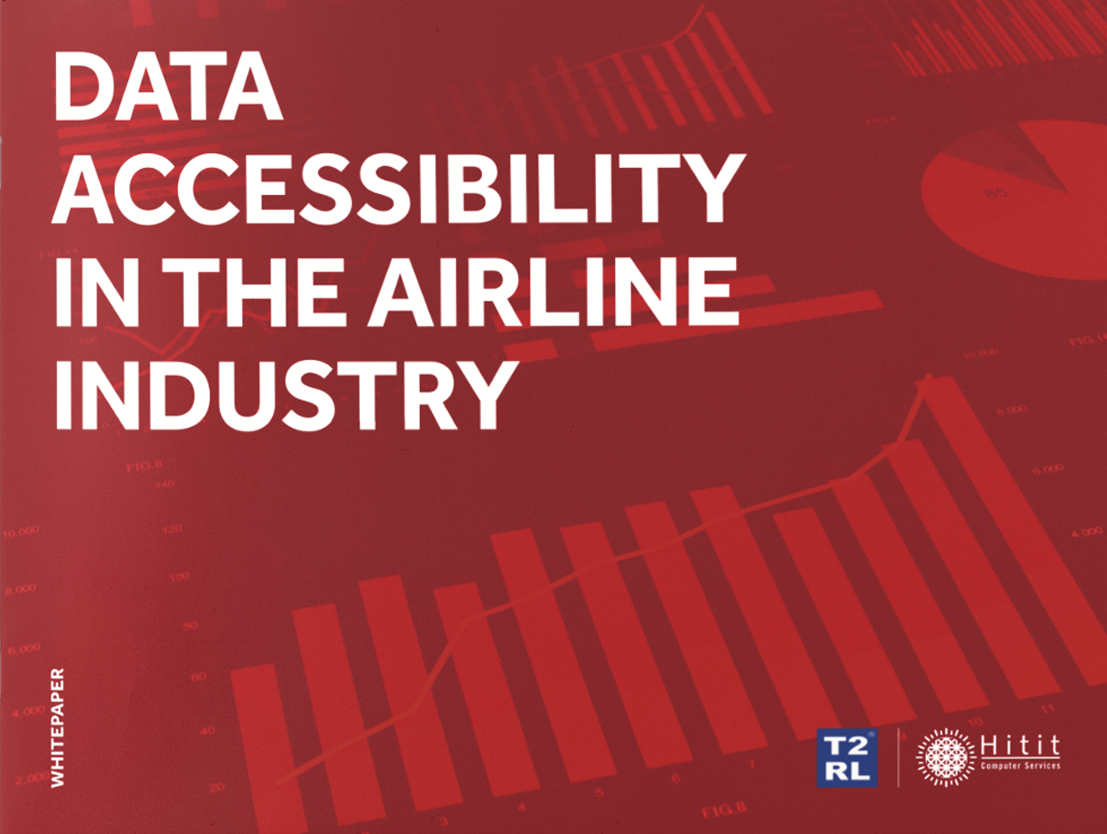Istanbul, 21 March 2018 - The entire travel industry is slowly but surely moving in a data-driven direction. However, most airlines are only now beginning to take control of their data, especially data from third-party providers, in order to generate revenue. PSS providers play an important role as they store and process high volumes of data. Hitit has teamed up with the industry experts at Travel Technology Research Ltd (T2RL) to prepare a white paper on the importance and perspective of data accessibility in the airline industry.
Airlines are unique in that they are the principal first-party data creator in the air travel industry. The amount of data points per passenger being created, stored and managed by the airline has increased and continues to increase dramatically. However, many airlines are only now understanding the potential of the data they store and are just beginning to take control and leverage it to generate revenue. Data accessibility in the airline industry is vital and many airlines must make better use of it and understand the importance of effective PSS and outsourcing PSS.
Airlines are under increasing pressure to ensure that they retain control of, and derive maximum value from, the data they create but which is hosted with third-parties. PSS providers, as the hosts of this data and suppliers of the processes, have a pivotal role in ensuring their airline customers can effectively leverage their data as an asset. Today, the airline industry is still in the process of figuring out the full extent of the possibilities.
Hitit believes that outsourcing IT is a given within the industry to create efficiencies and to drive innovation. They also believe it is imperative that airlines focus the procurement of IT services around their business and distribution strategy, and fully comprehend the contracts they are signing with IT vendors to ensure they are resilient and protect future opportunities which will inevitably arise with regards to their data.
Hitit CEO Nur Gokman said: “Hitit is proud to already have the systems in place which allow airlines to seamlessly share their data through blockchain with their partners today. Our PSS provides airlines with all data they need. Our core philosophy has always been to give our airline partners access to every feature and all data we have, and for them to use it as they wish. With our Crane solution suite, we have created not just another reservation system, but a true value-add platform that can act as the solid foundation of a dynamic and flexible business superstructure”.
Look-to-book ratio as a problem
Airlines have seen their look-to-book ratios increase dramatically, with some airlines now seeing average look-to-book ratios of between 300:1 and 500:1, driven by third-party consumers such as OTA’s, GDS’s and metasearchers. When looking at their own airline.com site, airlines state that their look-to-book ratios are much lower, on average between 40:1 and 50:1. This difference has somewhat skewed the airline’s perception in believing that their airline.com site is a more efficient point of sale. However, other criteria such as total revenue spend per search, marketing spend and customer behaviour (shopping via an OTA, but booking on the airline.com) also need to be considered. These availability transactions/data feeds often have a cost associated with them charged by the PSS provider. Hitit believes that airlines need to undertake a thorough Distribution Efficiency Analysis (DEA) when assessing the efficiency of their different distribution channels and strategy moving forward.
The data and analysis in this report is derived from a well-known independent research and consulting company, T2RL which has extensive research and experience working with airlines and vendors on the application of information technology for real airline IT challenges.
You can read the entire white paper on Hitit’s website: https://hititcs.com/whitepaper/T2RL-data-accessibility-in-the-airline-industry.pdf
